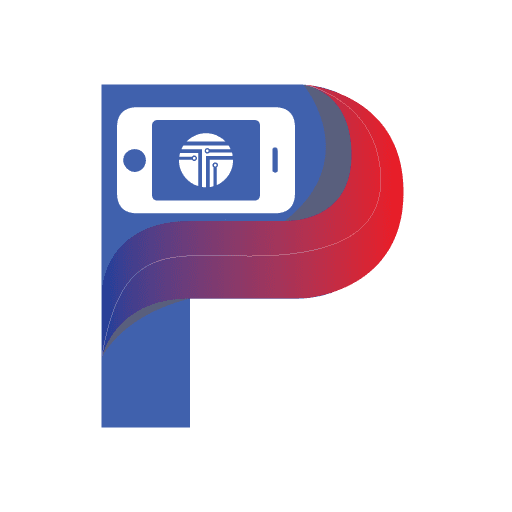Data confidentiality is all about keeping personal info locked down in one’s hands. In an era where information flies freely, this right can keep users out of the unwanted spotlight. But what happens if it’s breached? In this blog post, we’ll provide the definition of data privacy and discuss why it’s so important.
Why Is Data Confidentiality Important?
So why is data privacy important? First and foremost, it’s fundamental to building trust and maintaining a positive brand reputation. Effective information management and privacy practices signal customers that a company values their safety. On the flip side, a failure to protect customer information can lead to
- financial penalties,
- legal ramifications,
- and damage to a company’s reputation.
That’s why so many businesses today prefer to use the services of a reputable data privacy consulting agency. These experts help them stay ahead of regulatory changes, mitigate risks, and ensure their customers perceive them as trustworthy.

Data Privacy Acts
Now, what is data privacy legislation? It sets rules for how businesses collect, use, and store personal information. These laws require organizations to be transparent about their info practices and secure consent before they collect or share personal details.
- General Data Protection Regulation (GDPR)
It sets the gold standard globally. It’s all about consent before collection and gives individuals in the EU rights over their information like never before. Slip up? The fines can go up to millions. So, non-compliance is a costly affair.
- California Consumer Privacy Act (CCPA)
California’s take on anonymity. It lets folks see what information companies have on them and says companies must get a thumbs up before selling personal info. Plus, consumers can tell businesses to take a hike and not sell their information.
- California Privacy Rights Act (CPRA)
Takes CCPA further. It creates a new privacy agency for enforcement and introduces rights like correcting inaccurate personal info.
- Lei Geral de Proteção de Dados (LGPD)
Brazil’s answer to GDPR. It lays down the rules for processing personal information and aims to protect the anonymity and freedom of individuals.
Data Privacy Best Practices
Get the Law Down
First, you should understand privacy laws like GDPR, CCPA, and others. Why do they matter? Well, they’re the framework that defines how you handle personal info. Ignorance isn’t bliss — it’s a fast track to legal trouble. Each law has its quirks, and what works in one region might not fly in another. Inspect these rules closely because knowing them inside out is your first obligation.
Keep It Minimal
Only collect the information you absolutely need. More information means more responsibility — and more risk. Think of it this way: if you don’t need it, don’t store it. This minimalist approach reduces the potential for information breaches and streamlines your processes. Plus, customers appreciate a company that respects their anonymity enough not to hoard unnecessary details about them.
Lock It Up
Treat personal info with top-notch security. Encryption, firewalls, secure passwords — use them all. But don’t stop there. Regularly update your security measures to keep up with new threats. Mind that a breach of trust can be hard to rebuild.
Be Clear
Don’t bury your info practices in jargon-filled policies. Be upfront about what info you collect, why you need it, and how you use it. Most of your customers won’t have a law degree — so don’t put it down as if they do. Clear communication fosters trust, which is the currency of the digital age.
Train Your Team
Your team should be as committed to personal data privacy as you are. Regular training sessions can keep everyone current on best practices and legal requirements. It’s about fostering an anonymity culture permeating every aspect of your business.
Who Sees What
Strictly control employees’ access to personal info. Not everyone in your company needs to see everything. Implement access levels and monitor who looks at what. This will allow you to prevent external breaches and safeguard against internal threats, whether malicious or accidental.
Check Yourself
Complacency is the enemy of compliance. Regular audits of your data practices help ensure you’re not straying from the path. These checks can reveal vulnerabilities before they become breaches and show you where your practices can improve. So, be proactive, not reactive.
Ask the Experts
When in doubt, consult someone who knows. Information security consulting can provide specialized knowledge and an outside perspective. These experts can spot missed issues and guide you through legal rules. Investing in professional advice is investing in the safety and integrity of your information.
Conclusion
As you see, the data privacy definition goes beyond ticking boxes and following laws. It’s our pledge to honor everyone’s freedoms on the net. If we value anonymity, we protect individuals’ rights and build trust. We take all measures available to ensure their online activities are safe and their rights unquestioned.
FAQ
How Does Data Confidentiality Impact My Business?
It directly affects reputation and customer trust. By safeguarding personal information, you comply with laws and demonstrate respect for customer anonymity.
What Are The First Steps In Creating An Info Privacy Strategy?
First, understand relevant anonymity laws (like GDPR or CCPA) that affect your business. Conduct an info audit to know what you collect and why. Ensure your info collection is minimal and necessary. Then, implement security measures and privacy policies.
How Can My Business Stay Ahead Of Data Confidentiality Regulations?
Review and update your info anonymity practices regularly to comply with new regulations. Consider specialized privacy consulting for expert insights.



















Leave a Reply